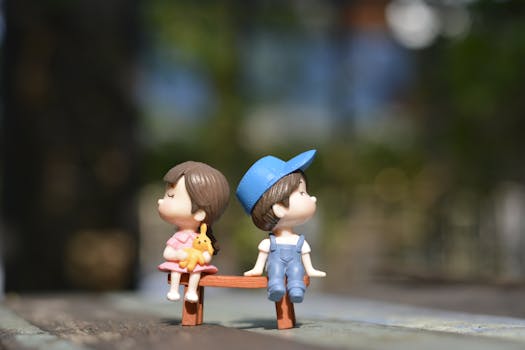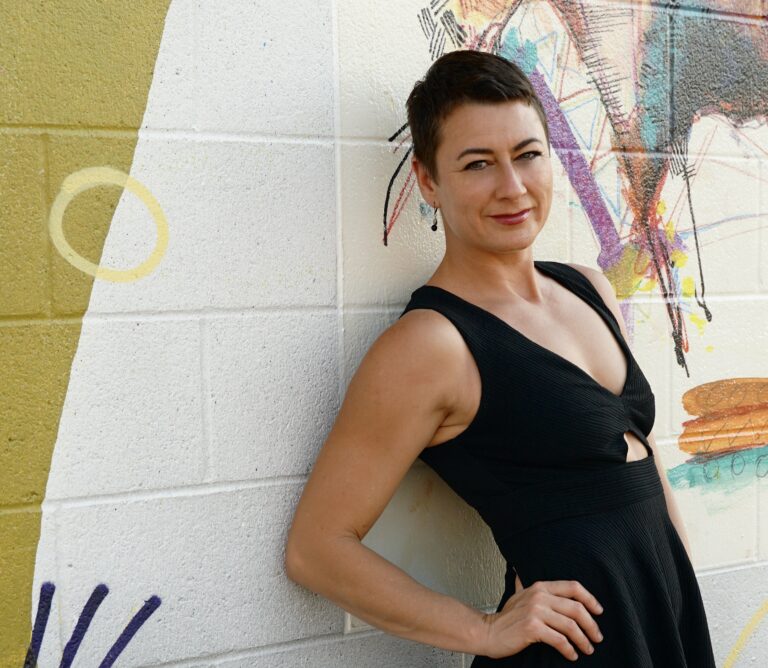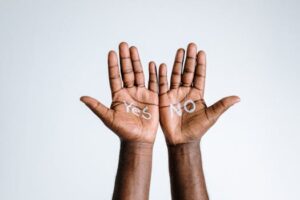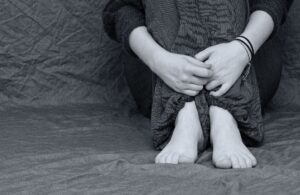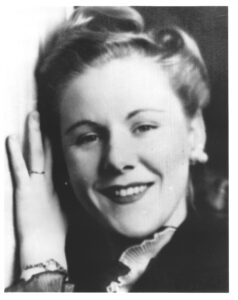Chasing Approval: The Pattern That Kept Me Running
The ways we attach, connect, and navigate intimacy, especially in our romantic lives, are often shaped by the core wounds of our formative years. Wounding happens within relationships, and so does healing. Healing is not a solitary process. Without realizing it, we replay old patterns, unconsciously yearning to break them through sheer repetition. These very patterns, if we’re willing, can become opportunities for deep healing.
As I’ve come to recognize my own repeating cycles, I’ve learned to give myself wide berth around my heaving, healing journey. Piling shame on top of my pain has never helped me move through any trouble, it has merely increased the suffering. Only when I come to my senses and become a neutral observer, the death grip of my emotional pattern loosens, ever so slightly, so that I have some breathing room and true healing begins.
Self-awareness without compassion is just another form of self-punishment.

True healing requires a gentle, layered unfolding, like the peeling apart of an artichoke, each layer bringing us closer to the heart. The temptation to rush the process, to rip off the bandaid and “fix” what feels broken, is compelling. But real healing asks us to sit with all parts of ourselves—the lovely and the unlovely, the just and the unjust—and hold them close, re-parenting and re-homing our parts the way that we would a child in need of comfort.
Healing isn’t about fixing ourselves; it’s about understanding ourselves.
My tendency to be in one long romantic relationship after another, from the age of 13, has given me a deeper understanding of my own patterns. One, in particular, stands out:
The Approval Chase
It goes like this: Approval is dangled just out of reach and given in small doses, then covertly withheld—creating a compulsion to earn it back, all while pretending I don’t need it. The harder it is to merit validation, the more valuable it feels. I chased the prize of intoxicating affirmation with full abandon from the time I hit puberty.
This background track played on repeat in my 20-year marriage, but at the time, I wasn’t self-aware enough to recognize the loop. I was too deep inside the trees to witness the forest. Fortunately, since patterns repeat, I was to have ample opportunity to get a bird’s eye view.
I’ve come to see how my self-worth was tied to rising to someone else’s standards. Because love felt like something to be earned, relationships became a proving ground. I would turn myself inside out to gain acceptance… And it was exhausting. My creative energy, my drive, my essence all funneled into the relentless black hole of trying to meet another person’s expectations.
After taking a time out and asking myself: What am I getting out of this? I realized I wasn’t even chasing after love in relationships—just a sense of worth. I was equating approval with value. I was an elite shapeshifter, morphing into whatever version of myself seemed most desirable in the moment:
Lighthearted and jovial? Got it.
Soft and sensual? Sure.
Quiet and small? No problem.
Non-confrontational and agreeable? All day long.
I could be anything—except my unfiltered, unpolished self.
 Deep down, the worth that I was seeking was merely an obsession with perfection and being clever and agile enough to never disappoint anyone. Like Atlas, I was condemned to carry the weight of impossible expectations. And carry I did, for decades, until I just recklessly let the world drop, unsure if it would crush me as it fell.
Deep down, the worth that I was seeking was merely an obsession with perfection and being clever and agile enough to never disappoint anyone. Like Atlas, I was condemned to carry the weight of impossible expectations. And carry I did, for decades, until I just recklessly let the world drop, unsure if it would crush me as it fell.
Tracing this cycle back to its roots, I see a lonely child who spent years chasing love that always felt just out of reach. My mother loved me, but the comfort I sought from her was elusive and mirage-like. I longed for her presence, and yet, at 13, we were separated when she moved out of Florida and I stayed behind and moved in with family friends. I ached for her, just as I had when I was eight, getting myself dressed and riding my bike to school alone. Just as I had when I’d come home from school to an empty house, awaiting the uncertain hour when someone would return and punctuate my solitude.
Seven years after we were parted, at 20, I came unhinged. On a wild impulse, I abandoned a college scholarship and moved to Arkansas, where my mother was living. Deep down, I must have been hoping to finally be close to her, aching for a completeness outside myself. But when I arrived, she wasn’t home. She had taken work in another state.
At the same time, I was dating someone I believed was my soulmate, someone I hoped could magically complete me by sealing up that raw, gaping ache for connection. Just three months after my move, in another reckless leap, I eloped—with said soulmate—at the county courthouse. No friends or family were there to witness my pledge of allegiance to a path I had no ability to comprehend.
When my mother returned to Arkansas a little over a year later, I had just given birth to my first child. I was terrified of motherhood, considering how I’d barely experienced it myself. My mother had been a scarce presence in my childhood, leaving me with no ready model to follow. I was hungry for support, hopeful I could lean on her through the exhaustion and overwhelm of caring for an infant. But just as I began to relax into her presence in my life, she passed away unexpectedly in the middle of the night, a heart attack robbing me of the solace I thought I’d finally secured.
It felt like the final, irrevocable loss of the love I had spent my life chasing. I wasn’t just metaphorically running toward love and belonging—I had spent years literally chasing my mother across states. In a moment she was gone and I was sure a part of me had died and left with her spirit. So spellbinding was the grief that I would be unable to feel it for 17 years and only then in tiny little rivulets, slipping through the cracks of my awareness but never fully emerging, as if my heart could only bear to feel it in fragments
Breaking the Cycle
Though it seems like an absurd connection, I was 13 when physically separated from my mother and that was the same year I entered my first serious romantic relationship. At such a formative time, I instinctively sought to fill the aching void she left with a person. Romantic relationships became my refuge, my coping mechanism—my drug of choice.

That dynamic of love-just-out-of-reach supercharged my approval-seeking patterns. I gravitated toward partners who were elusive, and once secured, held me to impossibly high standards. I worked tirelessly to attain to their love, believing that if I could finally prove my worth, I would feel whole. Looking back, I see how this drove me headlong into a toxic marriage at the tender age of 20—the same year I moved to Arkansas, still chasing the illusive love that always seemed just beyond my grasp.
My earliest attachment wounds shaped the way I sought love. The absence of security in my formative years primed me to chase approval. My mother-wound became the silent architect of my patterns, drawing me toward partners who mirrored that cycle of longing and unavailability. But this relentless striving has been gradually dissolving under the arising of self love, the way that heavy fog yields to the slow, warm dawn of a new day.
Though awareness has begun to break the spell, I still witness the pattern trying to resurface in unique ways and offering me, each time, another angle to view it from, another chance to deepen my awareness, to pull back another layer of the artichoke and get closer to the heart of the matter. I was in my middle 30’s when I finally began unraveling the edges of the thread of the truth: I was never incomplete to begin with.
Healing isn’t linear. It’s messy, frustrating, and sometimes cyclical [Sacred Circles Post]. But with every unraveling, I reclaim more of myself. I bow my head to a higher order, acknowledging that I am complete. I am enough. Just as I am, and all parts of me belong.

